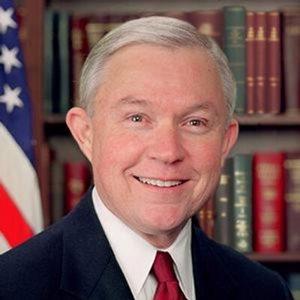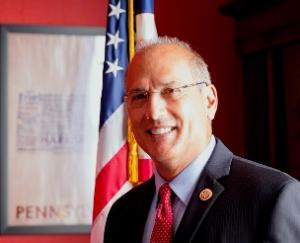The fabulist-in-chief was at it again.
No, the expansion of Medicaid is not driving the opioid epidemic.
The feds poking about in California and Colorado is raising hackles, Maryland's first commercial medical marijuana grows get underway, Montana's largest city bans dispensaries, and more.
The 2017 International Drug Policy Reform Conference is the major biannual gathering of drug policy reformers from around the world.
Connecticut continues to grapple with opioids, the Massachusetts governor and cops want mandatory minimums and a possible life sentence for dealers whose clients die, and more.
The Massachusetts legal pot commission is being top-loaded with legalization foes, Obama's former drug czar comes out for a ban on high-potency prescription opioids, House GOP members prepare amendments to a budget bill to block expanded asset forfeiture, and more.
Trump nominates a drug czar, federal drug prosecutions are down, Obama's clemency program barely scratched the surface, British nitrous oxide prosecutions get laughed out of court, and more.
The feds continue to seek marijuana data from states, a Philippines senator stands up to Duterte, Angela Merkel isn't worrying too much about weed, and more.
This article was produced in collaboration with AlterNet and first appeared here.

The president doesn't let reality get in the way of rhetoric. (Creative Commons/Gage Skidmore)
President Trump sure loves his border wall. It was a staple of his campaign rhetoric, and despite Mexico's firm insistence that there is no way it's ever going to pay for it, Trump's desire for it is unabated. Now, he's threatening to shut down the government unless he can persuade the Congress to make American taxpayers pay for it.
Last week, Trump claimed that "building the wall will stop much of the drugs coming into the county." That claim is yet another example of what CNN contributor Fareed Zakaria pungently referred to as Trump's primary political product: bullshit.
Here's what Trump claimed during his joint press conference last Monday with Finnish President Sauli Niinisto:
"The wall will stop much of the drugs from pouring into this country and poisoning our youth. So we need the wall. It's imperative… The wall is needed from the standpoint of drug -- tremendous, the drug scourge, what's coming through the areas that we're talking about… So we will build the wall, and we will stop a lot of things, including the drug -- the drugs are pouring in at levels like nobody has ever seen. We'll be able to stop them once the wall is up."
And here's the reality: Trump's own DEA and outside experts agree that building a wall along the 1,700 mile land border with Mexico will have little impact on the drug trade. Not only do drugs from Latin America enter America by sea and air as well as across the Mexican border, but the vast majority of drugs crossing the land border do so not in unfenced desert expanses, but through official ports of entry.
Mexican drug trafficking organizations "transport the bulk of their drugs over the Southwest Border through ports of entry (POEs) using passenger vehicles or tractor trailers," the DEA said in its 2015 National Drug Threat Assessment. "The drugs are typically secreted in hidden compartments when transported in passenger vehicles or comingled with legitimate goods when transported in tractor trailers."
Here's how the DEA detailed trafficking methods for various drugs:
Methamphetamine: "Traffickers most commonly transport methamphetamine in tractor trailers and passenger vehicles with hidden compartments. In addition, traffickers send methamphetamine through various mail services or by couriers traveling via bus or commercial airline.
Heroin: "Most heroin smuggled across the border is transported in privately-owned vehicles, usually through California, as well as through south Texas."
Cocaine: "Tractor trailers and passenger vehicles are frequently used to transport multi-kilogram quantities of cocaine. Cocaine is hidden amongst legitimate cargo or secreted inside of intricate hidden compartments built within passenger vehicles."
Marijuana: "Large quantities of marijuana are smuggled through subterranean tunnels."
A May 2017 DEA intelligence report obtained by Foreign Policy echoed the 2015 assessment. It, too, found that drugs coming from Mexico went indeed cross the border, but they mainly do so concealed in vehicles using ports of entry -- not those unfenced expanses. That report also noted that drugs headed for the Northeast United States, especially from Colombia -- the world's leading cocaine producer, as well as source of opium and heroin second only to Mexico in the US market -- come more often by plane and boat.
Drug traffickers "generally route larger drug shipments destined for the Northeast through the Bahamas and/or South Florida by using a variety of maritime conveyance methods, to include speedboats, fishing vessels, sailboats, yachts, and containerized sea cargo," the report found. "In some cases, Dominican Republic-based traffickers will also transport cocaine into Haiti for subsequent shipment to the United States via the Bahamas and/or South Florida corridor using maritime and air transport."
That report did not address the border wall, but its examples of how and where drugs enter the country show that in many cases, building a wall wouldn't make a scintilla of difference: "According to DEA reporting, the majority of the heroin available in New Jersey originates in Colombia and is primarily smuggled into the United States by Colombian and Dominican groups via human couriers on commercial flights to the Newark International Airport," the report found.
The report concluded with recommendations for reducing the drug trade, but none of them were about building a border wall. Instead, targeting foreign drug trafficking networks within the US "would be an essential component to any broad strategy for resolving the current opioid crisis."
It's not just his own DEA that is giving the lie to Trump's bullshit. His own chief of staff, John Kelly contradicted the president's position at a congressional hearing in April. Illegal drugs from Mexico "mostly come through the ports of entry," he said. "We know they come in in relatively small amounts, 10, 15 kilos at a time in automobiles and those kinds of conveyances."
Drug trafficking experts agreed with Kelly and the DEA -- not Trump.
Brookings Institution senior fellow and long-time analyst of drug production and trafficking Vanda Felbab-Brown summed things up bluntly in an essay earlier this month: "A barrier in the form of a wall is increasingly irrelevant to the drug trade as it now practiced because most of the drugs smuggled into the US from Mexico no longer arrive on the backs of those who cross illegally."
"The wall won't stop the flow of drugs into the United States," she told Fact Check last week.
Other experts contacted by Fact Check concurred. University of Maryland criminal justice professor and founder of the RAND Drug Policy Research Center Peter Reuter pronounced himself skeptical that a wall would have any impact on the drug trade.
"The history is that smugglers eventually figure a workaround," he said. "There have been many promising interdiction interventions -- none of them have made more than a temporary dent."
And Middle Tennessee State University political science professor Stephen D. Morris, whose research has largely focused on Mexico, came up with two reasons the border wall would not stop drugs.
"First, as you say, most drug shipments come disguised as commerce and are crossing the border by truck or in cargo containers. Human mules, to my knowledge, bring in a small fraction," he said. "Second, smugglers adapt. Whether it is tunnels, submarines, mules, drones, etc., they are good at figuring out new ways to get drugs to those in the US who will buy them."
It is a shame that Donald Trump's ascendency has so coarsened and vulgarized our national political discourse. But his lies demand a forthright response. Bullshit is bullshit.
back to top
This article was produced in collaboration with AlterNet and first appeared here.
Obamacare foes desperate for a new angle of attack on the increasingly popular health care program have come up with an intriguing new theory: The expansion of Medicaid to low-income adults under the Affordable Care Act (ACA) may be driving the opioid epidemic.
For the right, tying "failed socialist" Obamacare to the drug epidemic is a two-fer. They get to decry the very notion of government programs as something good for society and they get to link "bleeding heart" efforts to help poor people with outcomes that actually hurt them.It would be a nice little argument for cutting Medicaid -- if only it were true. But there's little evidence to suggest it is true and a lot of evidence to suggest it isn't.
The notion began circulating in the conservative media echo chamber after the Health and Human Services Department did a private analysis for Sen. Ron Johnson (R-WI) that said the opioid overdose rate rose nearly twice as much in states that expanded Medicaid under the ACA than those that didn't.
"These data appear to point to a larger problem," Johnson wrote. "Medicaid expansion may be fueling the opioid epidemic in communities across the country." Johnson pulled up just short of blaming Medicaid, saying more research is needed.
But if Johnson was looking for help from fellow Obamacare foe and Health and Human Services Secretary Tom Price, it wasn't exactly forthcoming. HHS wouldn't address questions about Johnson's analysis and instead issued a statement saying "correlation does not necessary prove causation," but that, yes, more research would be helpful.
But based on what we know so far, here are four reasons the charge that Medicaid is fueling the opioid epidemic is bogus:
1. Medicaid is actually increasing treatment for opioid addiction.
That's according to Temple University economist Catherine Maclean and Brendan Saloner of Johns Hopkins Bloomberg School of Public Health, who recently published a paper on Medicaid expansion and drug treatment: "Medicaid-reimbursed prescriptions for medications used to treat Substance Use Disorders in outpatient settings increased by 33% in expanding states relative to non-expanding states. Among patients admitted to specialty SUD treatment, we find that in expanding states Medicaid insurance and use of Medicaid to pay for treatment increased by 58% and 57% following the expansion. In an extension to the main analyses we find no evidence that the expansions affected fatal alcohol poisonings or drug-related overdoses," they wrote.
"Medicaid is doing its job," she told the Associated Press last week. "As more time passes, we may see a decline in overdoses in expansion states relative to non-expansion states."
2. States that expanded Medicaid did so in part because they already suffered higher overdose rates.
That same research by Maclean and Saloner also found that overdose rates were higher to begin with in states that expanded Medicaid. That suggests that pre-existing drug problems may have played a role in states deciding to expand Medicaid so they could leverage more federal money to fight addiction.
Republican labor economist Craig Garthwaite of Northwestern University's Kellogg School of Management told the AP that such a desire helped propel Ohio Republican Gov. John Kasich toward expanding Medicaid. When Kasich talks about why, he said, "it has a lot to do with mental health and substance use disorders." The claim that Medicaid is fueling opioid overdoses is "fundamentally flawed," Garthwaite added.
In other words, overdoses aren't increasing because of Medicaid; instead, Medicaid is expanding in part because of an effort to reduce overdoses.
3. Counties where insurance coverage has expanded the most have seen smaller increases in overdose deaths than those with smaller coverage gains.
A recent analysis by Vanderbilt University economist Andrew Goodman-Bacon and Harvard researcher Emma Sandoe compared trends in drug-related deaths at the county level, contrasting counties that had high levels of uninsured residents pre-ACA with those that didn't. Under the theory that Medicaid expansion is causing increased overdose deaths, we would expect to see the largest increase in deaths in those high-insured counties because that's where more people took advantage of expanded Medicaid. But that wasn't the case:
"Drug-related deaths increased at a lower rate in high-uninsurance counties than in low-uninsurance counties," the researchers found. "This does not support the notion that the ACA worsened the opioid epidemic."
In other words, the more people on expanded Medicaid, the lower the rate of increase in overdose deaths.
4. The Medicaid theory lumps all opioid overdose deaths together when many are not caused by prescription opioids.
This is bad science. If you want to measure prescription opioid deaths, you need to measure only prescription opioid deaths. But the HHS analysis for Sen. Johnson didn't do that. Instead, it lumped in deaths from non-prescription street drugs, such as heroin or illicitly manufactured fentanyl. Having a Medicaid card doesn't provide access to street drugs, and it is precisely heroin and illicit fentanyl that are driving the surge in opioid deaths since 2010.
"It's worrisome because this is the type of numerical evidence that's used to propose bad policy," Garthwaite told the AP.
back to top
The feds poking about in California and Colorado is raising hackles, Maryland's first commercial medical marijuana grows get underway, Montana's largest city bans dispensaries, and more.
California
On Wednesday, a federal request for patient data was raising hackles, but getting nowhere. An official with the National Marijuana Initiative, a project of the federal High Intensity Drug Trafficking Area (HIDTA) program, last month asked state officials for data on the age, gender, and stated affliction -- but not the name -- of every state resident who received a medical marijuana card between 2012 and 2016. The Initiative official said they wanted the data only to study "usage rates" among different age groups, but was nonetheless rebuffed by an employee of the state Medical Marijuana Program, who said the program only administers the ID card program and "does not have information regarding dispensaries." The program also clarified that it does not keep records of ID card application after they are issued.
Colorado
Last Thursday, a lawsuit claimed the Justice Department was using the IRS to do criminal investigations of pot businesses. The owners of a medical marijuana business in the town of Silt have filed a lawsuit challenging IRS subpoenas to the state's Marijuana Enforcement Division that seek information about how much marijuana the businesses have grown, who they sold it to, and when. The lawsuit alleges that the information is being sought for possible use in criminal investigations by the Justice Department. The IRS says it is simply trying to verify financial records.
Iowa
Last Wednesday, Ithe governor named members of a medical marijuana board. Gov. Kim Reynolds (R) named eight members to serve on the Medical Cannabidiol Board. The board is charged with overseeing the state's newly expanded, but still extremely restrictive, CBD medical marijuana law. Click on the link for the appointees' names.
Maryland
As of Monday, licensed medical marijuana grows were underway.The first two licensed medical marijuana cultivators in the state have begun growing their first crop. Both ForwardGro and Curio Wellness report they now have plants growing. But at this point, there's only one dispensary licensed to sell it to. The state could see up to a hundred dispensaries, which have until December to show final documentation and prove they are ready to do business.
Montana
On Tuesday, the state's largest city banned dispensaries. The Billings city council voted on Tuesday to ban dispensaries. Although the city enacted an ordinance in 2011 prohibiting dispensaries, a couple are operating in the city anyway. At least one of them, Montana Advanced Caregivers, has said it isn't going anywhere and will continue serving patients.
Pennsylvania
Last Thursday, Pstate officials agreed it must reveal the names of members on a secret application-vetting panel. The state Office of Open Records concluded that the state must name the members of a panel that scored applications for medical marijuana permits. The Health Department had argued that keeping the names secret protected panel members from undue pressure or threats to their safety. But the secrecy also blocked panel members from being scrutinized for conflicts of interest.
[For extensive information about the medical marijuana debate, presented in a neutral format, visit MedicalMarijuana.ProCon.org.]
back to top

DPA conference vigil, Albuquerque, 2009
The 2017 International Drug Policy Reform Conference will convene in Atlanta, Georgia on October 11-14. More than 1,500 people who believe the war on drugs has failed will be in attendance to network, to strategize and to lift up policies grounded in science, compassion, health and human rights.
Attendees will join a broad range of drug policy stakeholders -- activists, academics, healthcare and public health advocates, veterans, formerly incarcerated people, elected officials, students, and many others from around the country and across the globe!
This year, attendees will have the opportunity to spend three days deepening connections with people committed to finding alternatives to the war on drugs while participating in sessions facilitated by leading experts.
Visit http://www.reformconference.org to register. Get updates on the Reform Conference on Facebook and Twitter, and follow hashtag #NoMoreDrugWar.
.
back to top
Connecticut continues to grapple with opioids, the Massachusetts governor and cops want mandatory minimums and a possible life sentence for dealers whose clients die, and more.

MA Gov. Baker prefers 20th Century drug war mistakes over 21st century solutions. (mass.gov)
Fentanyl Overdoses Now Exceed Heroin Overdoses in Connecticut. The state saw 539 opioid overdose deaths in the first half of this year, and for the first time, more people died using fentanyl than heroin. While 257 people died of heroin overdoses, 322 died of fentanyl overdoses. The state medical examiner's office projects overdose deaths this year will reach 1,100, a 20% increase over last year.
Connecticut Governor Signs Opioid Bill. Gov. Dannel Malloy (D) on Thursday signed into law a bill aimed at slowing the state's opioid epidemic. The bill increases monitoring of opioid prescriptions and requires health insurers to cover inpatient detoxification. The bill passed the legislature unanimously. This is the third year in a row the state has passed bills aimed at the opioid epidemic.
Drug Policy
Massachusetts Governor Wants Harsher Penalties for Drug Deals That Lead to Death. Gov. Charlie Baker (R) has sent a letter to the legislature proposing a bill that would increase sentences for dealers who sold drugs to people who overdosed and died -- up to life in prison. "When illegal drug distribution causes a death, laws that were designed to punish the act are inadequate to recognize the seriousness of the resulting harm," Baker wrote, according to MassLive. "This legislation would provide for a penalty of up to life in prison and, like the offense of manslaughter while driving drunk, would also require a mandatory minimum sentence of at least five years," he added. The bill has the support of law enforcement.
Santa Fe Mayor to Introduce Resolution to Establish A Municipal Drug Strategy Task Force. Javier Gonzalez, the mayor of New Mexico's fourth largest city, will on Thursday introduce a resolution establishing a Municipal Drug Strategy Task Force charged with recommending innovative public health and safety approaches to problematic drug use in the city. "This isn't a problem we can solve by simply declaring a new, top-down policy. It has to be something we take on together, and the strategy has to come from the community. From harm reduction, to law enforcement, to prevention, to treatment, there is a huge range of expertise already developing in Santa Fe, and to find success we will need every one of those voices at the table," said Mayor Gonzales. He added, "So we're doing what we often can do best -- bringing people together."
back to top
The Massachusetts marijuana commission is being top-loaded with legalization foes, Obama's former drug czar comes out for a ban on high-potency prescription opioids, House GOP members prepare amendments to a budget bill to block expanded asset forfeiture, and more.

Attorney General Sessions wants to expand civil asset forfeiture. Some GOP reps want to block him. (senate.gov)
Massachusetts Names Legalization Foe to Head Marijuana Commission. State Treasurer Deb Goldberg has named former Bain and Company executive Steven Hoffman to chair the state's Cannabis Control Commission, which is charged with regulating legal marijuana. Hoffman voted against the legalization initiative last November. The only other member of the five-member commission who has been named so far is Gov. Charlie Baker's (R) nominee, former state Sen. Jen Flanagan (D-Leominster), another legalization foe. Attorney General Maura Healey (D) also gets to pick a member, while the other two members will be named on agreement by the governor, the attorney general, and the treasurer. (Update: Longtime reform activist Shaleen Title was named to the commission late Friday.)
Medical Marijuana
Iowa Governor Names Medical Marijuana Board Members. Gov. Kim Reynolds (R) named eight members to serve on the Medical Cannabidiol Board on Wednesday. The board is charged with overseeing the state's newly expanded, but still extremely restrictive, CBD medical marijuana law. Click on the link for the appointees' names.
Montana's Largest City Bans Dispensaries. The Billings city council voted on Tuesday to ban dispensaries. Although the city enacted an ordinance in 2011 prohibiting dispensaries, a couple are operating in the city anyway. At least one of them, Montana Advanced Caregivers, has said it isn't going anywhere and will continue serving patients.
Pennsylvania Must Reveal Names on Secret Marijuana Application-Vetting Panel. The state Office of Open Records concluded Thursday that the state must name the members of a panel that scored applications for medical marijuana permits. The Health Department had argued that keeping the names secret protected panel members from undue pressure or threats to their safety. But the secrecy also blocked panel members from being scrutinized for conflicts of interest.
Heroin and Prescription Opioids
Obama's Former Drug Czar Calls for Ban on High-Grade Opioids. Former Office of National Drug Policy (ONDCP -- the drug czar's office) head Michael Botticelli has come out in support of a citizen petition calling on the Food & Drug Administration to ban high-potency opioid pain medications.
Asset Forfeiture
House Republicans Prepare Amendments to Block Sessions Asset Forfeiture Expansion. A number of congressional Republicans will propose amendments to an omnibus funding bill aimed at blocking Attorney General Sessions' recent move to expand the federal civil asset forfeiture plan. At least four separate amendments are being proposed, each trying in a slightly different way to do the same job of killing the move.
back to top
Trump nominates a drug czar, federal drug prosecutions are down, Obama's clemency program barely scratched the surface, British nitrous oxide prosecutions get laughed out of court, and more.

Rep. Tom Marino (R-PA) is Trump's pick for job czar. (house.gov)
Federal Representatives File Marijuana Banking Amendments. Congressional supporters of legal marijuana have filed two amendments to the House Treasury appropriations bill. One would prohibit Treasury from spending money to punish banks that service the legal marijuana sector; the other bars Treasury from altering FinCEN's guidance to banking institutions. If passed, the bills would allow marijuana businesses in compliance with state laws to have access to the banking system.
Rep. Ted Lieu Files Amendment to Cut DEA Eradication Funding. Rep. Ted Lieu (D-CA) has reintroduced an amendment to slash funding for the DEA's marijuana eradication program by half. Last year, the budget for eradication was $18 million, spent mainly on uprooting low-THC feral hemp in the Midwest. The program "is a ridiculous waste of precious federal resources, especially when multiple states and jurisdictions have already legalized marijuana… it is time for the federal government to stop making marijuana use or possession a federal crime," Lieu said.
California Regulation Bills Die As Legislature Gets Out of the Way. The Senate Appropriations Committee last Friday bottled up ten bills aimed at regulating legal marijuana commerce, leaving the way clear for the state's new Bureau of Cannabis Control to finish its own rulemaking process before lawmakers come back with additional restrictions. "Legislative leaders are working with the administration on a budget trailer bill to resolve cannabis-related issues. It makes sense to take a comprehensive approach," Sen. Ricardo Lara (D-Bell Gardens) chairman of the committee, told the Marin Journal.
Colorado Lawsuit Claims DOJ Using IRS to Do Criminal Investigations of Pot Businesses. The owners of a medical marijuana business in the town of Silt have filed a lawsuit challenging IRS subpoenas to the state's Marijuana Enforcement Division that seek information about how much marijuana the businesses have grown, who they sold it to, and when. The lawsuit alleges that the information is being sought for possible use in criminal investigations by the Justice Department. The IRS says it is simply trying to verify financial records.
Delaware Task Force on Marijuana Legalization Will Meet Wednesday. A state legislative task force charged with studying how marijuana might be legalized and making recommendations on doing so will meet for the first time on Wednesday. The task force was created by legislative resolution after a bill to legalize marijuana failed earlier this year.
Drug Policy
Trump to Name Pennsylvania Republican Congressman as Drug Czar. The White House announced Friday that President Trump will nominate Rep. Tom Marino (R-PA) to head the Office of National Drug Control Policy (ONDCP -- the drug czar's office). Marino had been mentioned as a possible drug czar earlier, but withdrew from consideration in May, citing family illness.
Law Enforcement
Federal Drug Prosecutions Fall Under Trump. Despite all the tough talk about cracking down on crime coming from the White House and the Justice Department, the latest data from the department show that overall criminal conviction and drug conviction are both down during the first 10 months of Fiscal Year 2017. Overall criminal convictions were down 12.3% over last year and are now lower than at any time since 2008. Federal drug convictions were also down by 4.0%, reaching their lowest level since 1997. Of all DOJ prosecutions, immigration offenses accounted for 53.1%, followed by drug conviction at 18.6%.
Sentencing
Report on Obama's Clemency Initiative Finds Only a Small Percentage of Those Eligible Actually Got Clemency. The US Sentencing Commission has released an analysis of the implementation of the Obama administration's 2014 clemency initiative, which encouraged long-serving, nonviolent drug offenders to apply for sentence cuts. The report found that while President Obama granted more commutations than any other president (1,928) and that most of them (1,696) were sentence commutations under the 2014 Clemency Initiative, the initiative only saw sentence cuts for only 3.4% of all federally imprisoned drug trafficking offenders who appeared to meet all the clemency criteria. On the other hand, those who did get sentence cuts saw an average reduction of nearly 12 years.
International
Philippines Drug War Has Nation's Jails Creaking Under the Pressure. While the horrid killings of thousands of suspected drug users and dealers had grabbed the world's attention, President Rodrigo Duterte's drug war has also seen nearly 100,000 people arrested on drug charges, with almost all (94%) of them still in jail awaiting trial. As a result, the country's jails are now tremendously overcrowded, with one prison with an official capacity of 262 inmates now holding 2,975 -- three-fourths of them for drug offenses. It's not just the jails that are feeling the pinch; the Public Attorney's Office, which defends the cases, reports a backlog of 303,000 drug cases, nearly 2 ½ times the backlog when Duterte took office.
British Courts Throw Out Laughing Gas Prosecutions. In the past few days, two cases in which the government attempted to prosecute people for supplying nitrous oxide (laughing gas) have collapsed, with courts ruling that that the stuff is a medicine and thus exempt from last year's Psychoactive Substances Act. This is no surprise to drug experts, including the government's own drug advisors, who warned the law was overly broad and unworkable.
back to top
The feds continue to seek marijuana data from states, a Philippines senator stands up to Duterte, Angela Merkel isn't worrying too much about weed, and more.

Philippines Sen. Risa Hontiveros is standing up to President Duterte and his bloody drug war. (Wikipedia.org)
Federal Request for Patient Data Raises Hackles in California. An official with the National Marijuana Initiative, a project of the federal High Intensity Drug Trafficking Area (HIDTA) program, last month asked state officials for data on the age, gender, and stated affliction -- but not the name -- of every state resident who received a medical marijuana card between 2012 and 2016. The Initiative official said they wanted the data only to study "usage rates" among different age groups, but was nonetheless rebuffed by an employee of the state Medical Marijuana Program, who said the program only administers the ID card program and "does not have information regarding dispensaries." The program also clarified that it does not keep records of ID card application after they are issued.
Maryland Medical Marijuana Grows Are Underway.The first two licensed medical marijuana cultivators in the state have begun growing their first crop. Both ForwardGro and Curio Wellness report they now have plants growing. But at this point, there's only one dispensary licensed to sell it to. The state could see up to a hundred dispensaries, which have until December to show final documentation and prove they are ready to do business.
International
Philippines Senator Rejects Duterte Claim There is No Policy to Kill Drug Offenders. A day after President Rodrigo Duterte called her "stupid" for questioning his claim that there was no state policy of killing drug suspects, Sen. Risa Hontiveros reiterated her disbelief: "I am not a genius but I know that while two deaths do not make a policy, thousands of dead, without remorse, regret, or action from the government do," she said in a statement. "Eight thousand to 13,000 people have already died in this bloody war on drugs, mostly from the ranks of the poor."
Angela Merkel Not in Any Rush to Legalize Weed. Don't hold your breath waiting for German Chancellor Angela Merkel to lead the way on marijuana law reform. "I do not think of it," she told Neue Osnabrucker Zeitung. "We allow a very limited medical application, and I do not intend to make any changes."
back to top







